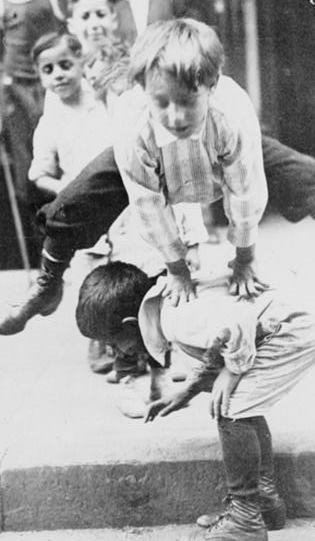The Case for Play
How a handful of researchers are trying to save childhood.
...The emphasis on standardized testing, on attempting to constantly monitor, measure, and quantify what students learn, has forced teachers to spend more of the school day engaged in so-called direct instruction and has substantially reduced or eliminated opportunities that children have for exploring, interacting, and learning on their own. Recess has, in many districts, vanished from the schedule entirely. After school, parents shuttle their kids from activity to activity, depriving them of unstructured time alone or with friends.
That matters, according to researchers, not just because play reduces stress and makes children more socially competent—which evidence suggests that it does. It matters also because play supposedly improves working memory and self-regulation; in other words, it makes kids sharper and better-behaved. So, ironically, by shortchanging them on play in favor of academics, we may actually be inhibiting their development....
....Within the world of those who take play seriously, there are multiple camps, each with its own dearly held tenets. There are the Free Players, who argue that play is a human right and that adults should more or less leave kids alone. There are the Play Skeptics, who see play as useful for blowing off steam but are dubious about its cognitive upside. And there are Play Moderates, who advocate a mix of free play, adult-guided play, and traditional classroom instruction.
...Vygotsky viewed play, particularly pretend play, as a critical part of childhood, allowing a child, as he said in one oft-repeated quote, to stand "a head taller than himself." His biggest theoretical contribution may have been the Zone of Proximal Development: the idea that children are capable of a range of achievement during each stage of their lives. In the right environment, and with the right guidance (which was later dubbed "scaffolding"), children can perform at the top of that range.
...The students in the play-based school scored better on cognitive flexibility, self-control, and working memory—attributes of "executive function," which has been consistently linked to academic achievement....
....Whether children play enough isn't an obscure debate among developmental psychologists. If it's true that children who spend too little time playing struggle with executive function, then we may be raising a generation of kids with less self-control, shorter attention spans, and poorer memory skills...
..."The right answer is less programming and more opportunities for kids to make up things on their own."
...40 cities have expressed interest in holding their own Ultimate Block Parties. She and her colleagues will soon unveil a Web site to promote play research, and more books are on the way. Their goal, she says, is to restore play to its rightful, respected place in the lives of children. "Even if we don't understand it perfectly, it's silly to take play away from society," she says. "It's like taking love away. It's crazy."
The Look of It: Visual Elements of Fiction
8 hours ago






No comments:
Post a Comment